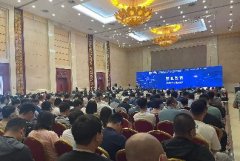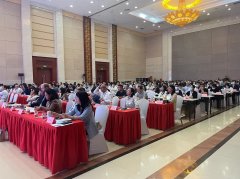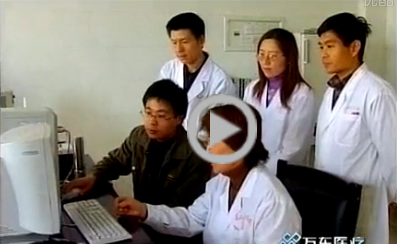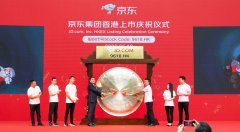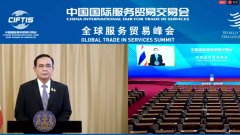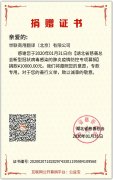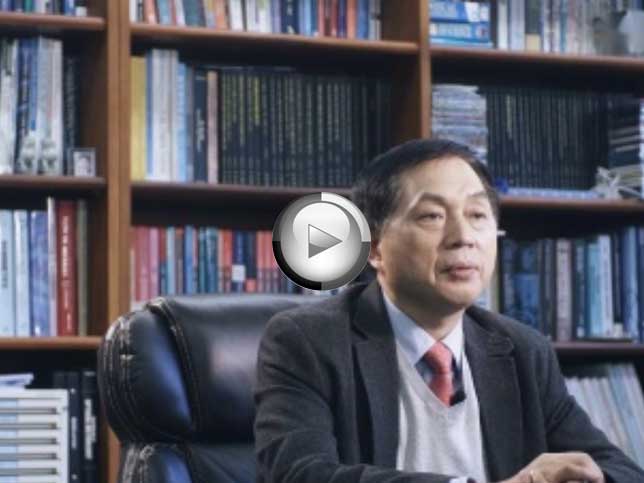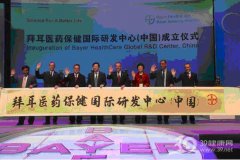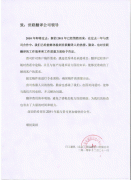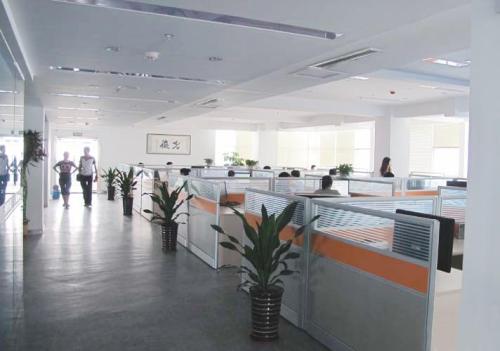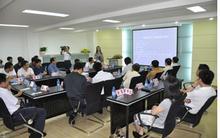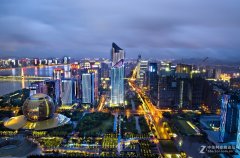双语丨《中国的民主》白皮书(一)
时间:2022-01-04 08:10 来源:未知 作者:dl 点击:次
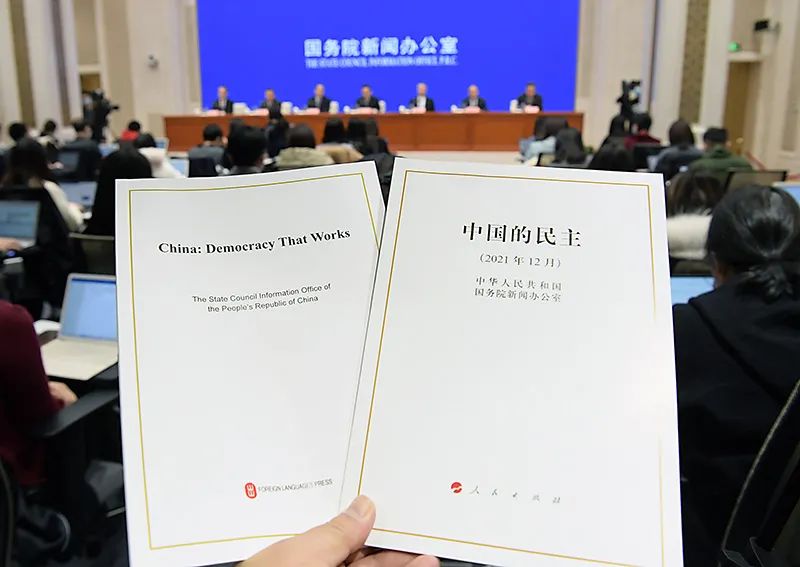 12月4日,国务院新闻办发表《中国的民主》白皮书。
白皮书说,民主是全人类的共同价值,是中国共产党和中国人民始终不渝坚持的重要理念。100年来,党高举人民民主旗帜,领导人民在一个有几千年封建社会历史、近代成为半殖民地半封建社会的国家实现了人民当家作主,中国人民真正成为国家、社会和自己命运的主人。
白皮书介绍,中国的民主是人民民主,人民当家作主是中国民主的本质和核心。全过程人民民主,实现了过程民主和成果民主、程序民主和实质民主、直接民主和间接民主、人民民主和国家意志相统一,是全链条、全方位、全覆盖的民主,是最广泛、最真实、最管用的社会主义民主。
白皮书强调,民主是历史的、具体的、发展的,各国民主植根于本国的历史文化传统,成长于本国人民的实践探索和智慧创造,民主道路不同,民主形态各异。民主不是装饰品,不是用来做摆设的,而是要用来解决人民需要解决的问题的。民主是各国人民的权利,而不是少数国家的专利。
白皮书指出,一个国家是不是民主,应该由这个国家的人民来评判,而不应该由外部少数人指手画脚来评判。国际社会哪个国家是不是民主的,应该由国际社会共同来评判,而不应该由自以为是的少数国家来评判。实现民主有多种方式,不可能千篇一律。用单一的标尺衡量世界丰富多彩的政治制度,用单调的眼光审视人类五彩缤纷的政治文明,本身就是不民主的。
前言
Preamble
民主是全人类的共同价值,是中国共产党和中国人民始终不渝坚持的重要理念。
Democracy is a common value of humanity and an ideal that has always been cherished by the Communist Party of China (CPC) and the Chinese people.
今年是中国共产党成立100周年。100年前,中国共产党一经诞生,就把为中国人民谋幸福、为中华民族谋复兴确立为自己的初心和使命,为实现人民当家作主进行了不懈探索和奋斗。100年来,党高举人民民主旗帜,领导人民在一个有几千年封建社会历史、近代成为半殖民地半封建社会的国家实现了人民当家作主,中国人民真正成为国家、社会和自己命运的主人。
This year marks the centenary of the CPC. Since its founding in 1921, the Party has taken wellbeing for the Chinese people and the rejuvenation of the Chinese nation as its abiding goals, and has made continuous efforts to ensure the people’s status as masters of the country. China is a country with a feudal history dating back several thousand years that descended into a semi-feudal and semi-colonial society after the Opium War of 1840. Over the past hundred years, the Party has led the people in realizing people’s democracy in China. The Chinese people now truly hold in their hands their own future and that of society and the country.
中国的民主是人民民主,人民当家作主是中国民主的本质和核心。党的十八大以来,党深化对中国民主政治发展规律的认识,提出全过程人民民主重大理念并大力推进,民主价值和理念进一步转化为科学有效的制度安排和具体现实的民主实践。全过程人民民主,实现了过程民主和成果民主、程序民主和实质民主、直接民主和间接民主、人民民主和国家意志相统一,是全链条、全方位、全覆盖的民主,是最广泛、最真实、最管用的社会主义民主。
The people’s status as masters of the country is the essence of people’s democracy. Since the 18th CPC National Congress in 2012, with a deeper understanding of China’s path to democracy and the political system, the Party has developed whole-process people’s democracy as a key concept and striven to translate it and relevant democratic values into effective institutions and concrete actions.
Whole-process people’s democracy integrates process-oriented democracy with results-oriented democracy, procedural democracy with substantive democracy, direct democracy with indirect democracy, and people’s democracy with the will of the state. It is a model of socialist democracy that covers all aspects of the democratic process and all sectors of society. It is a true democracy that works.
民主是历史的、具体的、发展的,各国民主植根于本国的历史文化传统,成长于本国人民的实践探索和智慧创造,民主道路不同,民主形态各异。评价一个国家政治制度是不是民主的、有效的,主要看国家领导层能否依法有序更替,全体人民能否依法管理国家事务和社会事务、管理经济和文化事业,人民群众能否畅通表达利益要求,社会各方面能否有效参与国家政治生活,国家决策能否实现科学化、民主化,各方面人才能否通过公平竞争进入国家领导和管理体系,执政党能否依照宪法法律规定实现对国家事务的领导,权力运用能否得到有效制约和监督。
Democracy is a concrete phenomenon that is constantly evolving. Rooted in history, culture and tradition, it takes diverse forms and develops along the paths chosen by different peoples based on their exploration and innovation.
The best way to evaluate whether a country’s political system is democratic and efficient is to observe whether the succession of its leaders is orderly and in line with the law, whether all the people can manage state and social affairs and economic and cultural undertakings in conformity with legal provisions, whether the public can express their requirements without hindrance, whether all sectors can efficiently participate in the country’s political affairs, whether national decision-making can be conducted in a rational and democratic way, whether people of high caliber in all fields can be part of the national leadership and administrative systems through fair competition, whether the governing party is in charge of state affairs in accordance with the Constitution and the law, and whether the exercise of power can be kept under effective restraint and supervision.
民主不是装饰品,不是用来做摆设的,而是要用来解决人民需要解决的问题的。一个国家民主不民主,关键在于是不是真正做到了人民当家作主,要看人民有没有投票权,更要看人民有没有广泛参与权;要看人民在选举过程中得到了什么口头许诺,更要看选举后这些承诺实现了多少;要看制度和法律规定了什么样的政治程序和政治规则,更要看这些制度和法律是不是真正得到了执行;要看权力运行规则和程序是否民主,更要看权力是否真正受到人民监督和制约。
Democracy is not a decorative ornament, but an instrument for addressing the issues that concern the people. Whether a country is democratic depends on whether its people are truly the masters of the country; whether the people have the right to vote, and more importantly, the right to participate extensively; whether they have been given verbal promises in elections, and more importantly, how many of these promises are fulfilled after elections; whether there are set political procedures and rules in state systems and laws, and more importantly, whether these systems and laws are truly enforced; whether the rules and procedures for the exercise of power are democratic, and more importantly, whether the exercise of power is genuinely subject to public scrutiny and checks.
民主是各国人民的权利,而不是少数国家的专利。一个国家是不是民主,应该由这个国家的人民来评判,而不应该由外部少数人指手画脚来评判。国际社会哪个国家是不是民主的,应该由国际社会共同来评判,而不应该由自以为是的少数国家来评判。实现民主有多种方式,不可能千篇一律。用单一的标尺衡量世界丰富多彩的政治制度,用单调的眼光审视人类五彩缤纷的政治文明,本身就是不民主的。
Democracy is the right of the people in every country, rather than the prerogative of a few nations. Whether a country is democratic should be judged by its people, not dictated by a handful of outsiders. Whether a country is democratic should be acknowledged by the international community, not arbitrarily decided by a few self-appointed judges. There is no fixed model of democracy; it manifests itself in many forms. Assessing the myriad political systems in the world against a single yardstick and examining diverse political structures in monochrome are in themselves undemocratic.
民主是多样的,世界是多彩的。在世界文明的百花园里,中国的民主之花绚丽绽放。中国愿与各国交流互鉴、携手合作,为人类政治文明发展进步贡献智慧和力量。
In the richly diverse world, democracy comes in many forms. China’s democracy is thriving alongside those of other countries in the garden of civilizations. China stands ready to contribute its experience and strength to global political progress through cooperation and mutual learning.
中国共产党领导人民实现全过程人民民主
Whole-Process People’s Democracy Under CPC Leadership
中华民族是历史悠久、勤劳智慧的民族,创造了辉煌灿烂的政治文明。在5000多年历史长河中,中国人民探索形成的民本思想,蕴含着丰富的民主因素,体现了中国人民对民主的朴素认知和不懈追求。但是,在封建专制之下,广大劳动人民始终处于受压迫受剥削的最底层。近代以后,中国逐步成为半殖民地半封建社会,国家将倾,民族将亡,人民毫无民主可言。为救亡图存,中国人民奋起抗争,各种革命变革接连而起,各种救国方案轮番出台,但都未能取得成功。辛亥革命后,中国模仿议会制、多党制、总统制等西方政治制度模式的各种尝试都以失败告终。以“民主”“科学”为基本口号的新文化运动的兴起,俄国十月革命的胜利,五四运动的爆发,马克思主义在中国的传播,促进了中国人民的伟大觉醒,中国先进分子对民主有了更加深刻的思考和新的认知。
China is a diligent and wise nation with a long history. It has created a brilliant political civilization. All of five thousand years ago, ancient Chinese began to explore the concept that people are the foundation of a state. Their ideas contained the seeds of what we know today as democracy. However, over the centuries of feudal autocracy, the people were always the oppressed and exploited underclass.
After the 1840s, China gradually descended into a semi-feudal and semi-colonial society. There was no popular democracy at all and the country was on the verge of collapse. The people stood up and fought to salvage their country. Revolution and reform were attempted, and many plans for saving the country were introduced, none of which succeeded.
Following the Revolution of 1911, the Chinese people made numerous attempts to introduce the Western political systems, including the parliamentary system, multiparty system, and presidential system, all of which ended in failure.
The rise of the New Culture Movement championing democracy and science, the victory of the October Revolution in Russia, the May 4th Movement, and the spread of Marxism in China, began to awaken the Chinese people, and progressive individuals gained a deeper understanding of democracy and came up with new ideas.
1921年,中国共产党成立,点亮了中国的民主之光。新民主主义革命时期,党领导人民为争取民主、反抗压迫和剥削进行了艰苦卓绝斗争,取得新民主主义革命胜利,成立新中国,实现了中国从几千年封建专制政治向人民民主的伟大飞跃,中国人民从此站起来了,中国民主发展进入新纪元,人民当家作主从梦想变为现实。社会主义革命和建设时期,党领导人民建立和巩固国家政权,对生产资料进行社会主义改造,制定颁布新中国第一部宪法,确立人民代表大会制度、中国共产党领导的多党合作和政治协商制度、民族区域自治制度,人民当家作主的政治架构、经济基础、法律原则、制度框架基本确立并不断发展,中国的民主大厦巍然耸立起来。改革开放和社会主义现代化建设新时期,党领导人民坚定不移推进社会主义民主法治建设,坚持中国特色社会主义政治发展道路,坚持党的领导、人民当家作主、依法治国有机统一,积极稳妥推进政治体制改革,巩固和发展人民代表大会制度,进一步完善中国共产党领导的多党合作和政治协商制度、民族区域自治制度、基层群众自治制度等基本政治制度,民主发展的政治制度保障和社会物质基础更加坚实。
The founding of the CPC in 1921 was like a beacon, illuminating the way towards democracy in China.
During the New Democratic Revolution (1919-1949), the Party led the people in their tenacious fight for democracy, resisting oppression and exploitation in the course of their struggle. Ultimately, victory was secured in the revolution.
On October 1, 1949, the People’s Republic of China (PRC) was founded. This marked the ultimate transformation of the country from the rule of feudal autocracy, which had been in existence for several thousand years, to a people’s democracy. It proclaimed that the Chinese people had stood upright. It ushered in a new era for democracy in China. It turned a dream into reality – the people running their own country. During socialist revolution and reconstruction (1949-1978), the CPC united and led the people in: •building and consolidating state power; •completing the socialist transformation of the means of production; •promulgating the first Constitution of the PRC; •establishing the system of people’s congresses, the system of CPC-led multiparty cooperation and political consultation, and the system of regional ethnic autonomy.
The political structure, economic foundation, legal principles, and institutional framework for the people to run their country were all put in place and have since developed steadily. China’s tower of democracy was built on strong foundations and stands tall.
In the years of reform, opening up and socialist modernization after 1978, the Party led the people in advancing socialist democracy and the rule of law, sticking to the path of socialist political progress with Chinese characteristics.
It ensured the Party’s leadership, the people’s status as masters of the country, and law-based governance, and advanced reform of the political structure in an active and steady manner. The system of people’s congresses was consolidated and developed. The system of CPC-led multiparty cooperation and political consultation, the system of regional ethnic autonomy, the system of community-level self-governance, and other basic political systems were improved.
The political and institutional guarantees and material conditions for developing democracy were reinforced. 党的十八大以来,中国特色社会主义进入新时代。以习近平同志为核心的党中央,立足新的历史方位,深刻把握中国社会主要矛盾发生的新变化,积极回应人民对民主的新要求新期盼,深刻吸取古今中外治乱兴衰的经验教训,全面总结中国民主发展取得的显著成就,团结带领人民发展全过程人民民主,中国的民主发展进入历史新时期。坚持和加强党的全面领导,深化党和国家机构改革,党对发展全过程人民民主的领导进一步加强。推进国家治理体系和治理能力现代化,确立和坚持中国特色社会主义根本制度、基本制度、重要制度,人民当家作主制度体系更加健全。全面推进民主选举、民主协商、民主决策、民主管理、民主监督,协同推进选举民主与协商民主,人民依法有序政治参与不断扩大,人民的民主生活丰富多彩。全过程人民民主,使人民当家作主更好体现在国家政治生活和社会生活之中,中国特色社会主义政治制度优越性得到更好发挥,生动活泼、安定团结的政治局面得到巩固发展,激发和凝聚了中国人民奋斗新时代的磅礴力量。党团结带领人民,取得抗击新冠肺炎疫情重大战略成果,历史性地解决绝对贫困问题,全面建成小康社会,化解一系列重大风险,开启全面建设社会主义现代化国家新征程,向着全体人民共同富裕迈进,全过程人民民主在中华大地展示出勃勃生机和强大生命力,中国人民的民主自信更加坚定,中国的民主之路越走越宽广。 Since the Party’s 18th National Congress in 2012, socialism with Chinese characteristics has entered a new era. The CPC Central Committee with Xi Jinping at the core has built a keen understanding of how the principal challenge facing Chinese society has changed. It has worked hard to respond to the people’s new requirements and expectations for democracy. After drawing on past experience in maintaining order and stability across the world, and reviewing China’s progress in democracy, the CPC decided to develop whole-process people’s democracy, beginning a new stage of democracy. Some of the most important achievements are:
strengthening the CPC’s overall leadership, reforming Party and government institutions, and reinforcing the Party’s leadership over the development of whole-process people’s democracy;
modernizing China’s governance system and capacity;
establishing and upholding the fundamental, basic, and important systems of Chinese socialism, with a more complete institutional framework to ensure the people’s status as masters of the country;
advancing democratic elections, consultations, decision-making, management, and oversight, progressing electoral democracy and consultative democracy side by side, and expanding the people’s orderly political participation and the scope of democracy;
consolidating the people’s principal position in the country’s political and social life; leveraging the institutional strengths of Chinese socialism; promoting political stability, unity and vitality; building a nationwide force towards the country’s goals in the new era; achieving a strategic success in the fight against the Covid-19 epidemic; ending absolute poverty, and completing the building of a moderately prosperous society in all respects. China has addressed major risks and set out on a new journey towards a modern socialist country and common prosperity, demonstrating the viability and strength of whole-process people’s democracy. The Chinese people have greater confidence in China’s democracy, and can now look forward to a bright future. 全过程人民民主,是中国共产党团结带领人民追求民主、发展民主、实现民主的伟大创造,是党不断推进中国民主理论创新、制度创新、实践创新的经验结晶。中国共产党的奋斗史,是团结带领人民探索、形成、发展全过程人民民主的奋斗史。全过程人民民主,是近代以来党团结带领人民长期奋斗历史逻辑、理论逻辑、实践逻辑的必然结果,是坚持党的本质属性、践行党的根本宗旨的必然要求。全过程人民民主,充分彰显社会主义国家性质,充分彰显人民主体地位,使人民意志得到更好体现、人民权益得到更好保障、人民创造活力进一步激发。全过程人民民主,形成和发展于党领导人民争取民族独立、人民解放和实现国家富强、人民幸福的不懈奋斗,扎根在广袤的中华大地,吸吮着中华民族漫长奋斗积累的文化养分,学习借鉴人类文明优秀成果,符合中国国情,得到人民衷心拥护,具有深厚现实基础和广阔发展前景。全过程人民民主,具有完整的制度程序和完整的参与实践,使选举民主和协商民主这两种重要民主形式更好结合起来,构建起覆盖960多万平方公里土地、14亿多人民、56个民族的民主体系,实现了最广大人民的广泛持续参与。全过程人民民主,既有鲜明的中国特色,也体现全人类共同价值,为丰富和发展人类政治文明贡献了中国智慧、中国方案。 Whole-process people’s democracy is a creation of the CPC in leading the people to pursue, develop and realize democracy, embodying the Party’s innovation in advancing China’s democratic theories, systems and practices. The Party’s history of struggle is a course of rallying the people and leading them to explore, establish and develop whole-process people’s democracy. It is a logical outcome of history, theory and practice based on the strenuous efforts of the people under the leadership of the Party. It is a requisite for maintaining the very nature of the Party and fulfilling its fundamental purpose. Whole-process people’s democracy, giving full expression to the socialist nature of the state and the people’s principal position, serves to better represent the people’s will, protect their rights and fully unleash their potential to create. Whole-process people’s democracy has formed and developed in a nationwide effort, led by the CPC, to strive for national independence, the country’s prosperity, and the people’s liberation and wellbeing. It is rooted in this vast land, nourished by the culture and traditions of the Chinese civilization, and draws on the achievements of human civilization. Suited to the conditions in China and embraced by the people, it has solid foundations and a bright future. Whole-process people’s democracy is a complete system with supporting mechanisms and procedures, and has been fully tested through wide participation. It integrates two major democratic models – electoral democracy and consultative democracy. It operates a democratic system covering a population of more than 1.4 billion from 56 ethnic groups of a vast country, making possible the wide and sustained participation of all its people. Whole-process people’s democracy has distinctive Chinese characteristics; it also exemplifies common values and contributes China’s ideas and solutions to the political progress of humanity. 中国共产党的领导,是中国发展全过程人民民主的根本保证。在中国这样一个大国,真正把14亿多人民的意愿表达好、实现好并不容易,必须有坚强有力的统一领导。中国共产党始终坚持以人民为中心、坚持人民主体地位,真正为人民执政、靠人民执政;充分发挥总揽全局、协调各方的领导核心作用,保证党领导人民有效治理国家,保证人民民主的理念、方针、政策贯彻到国家政治生活和社会生活的方方面面;坚持一切为了群众,一切依靠群众,从群众中来,到群众中去的群众路线,密切同人民群众的联系,凝聚起最广大人民的智慧和力量;坚持党内民主,实行民主选举、民主决策、民主管理、民主监督,带动和促进人民民主的发展;健全选人用人制度机制,使各方面优秀人才进入党的领导体系和国家治理体系,确保党和国家的领导权掌握在忠于马克思主义、忠于党、忠于人民的人手中;坚持依法执政、依法治国,领导立法、保证执法、支持司法、带头守法,通过法治保障党的政策有效实施、保障人民当家作主。 CPC leadership is the fundamental guarantee for whole-process people’s democracy. It is no easy job for a country as big as China to fully represent and address the concerns of its 1.4 billion people. It must have a robust and centralized leadership. Committed to people-centered development and ensuring their principal status to run the country, the CPC governs for the people and by relying on the people. The CPC plays to the full its role as overall leader and coordinator in all areas of endeavor in every part of the country, to ensure that the people run the country effectively and that the people’s democracy is an overarching philosophy, principle and policy in the country’s political and social life.
The CPC follows the mass line – it is committed to doing everything for the people and relying on them, and follows the principle of “from the people, to the people”. It maintains close ties with the people and pools their wisdom and strength.
The CPC upholds democracy within the Party and practices democratic elections, decision-making, management and oversight, to better serve the development of people’s democracy. The CPC has improved its mechanism for selecting and appointing officials, enabling outstanding individuals in all sectors to enter the Party leadership teams and the government, and ensuring that the leadership of the Party and the state rests in the hands of those loyal to Marxism, the Party, and the people. The CPC upholds law-based governance of the country. It exercises leadership over legislation, guarantees law enforcement, supports judicial justice, and plays an exemplary role in abiding by the law. Through advancing the rule of law, the Party ensures that its policies are effectively implemented and that the people run the country as its masters. |





